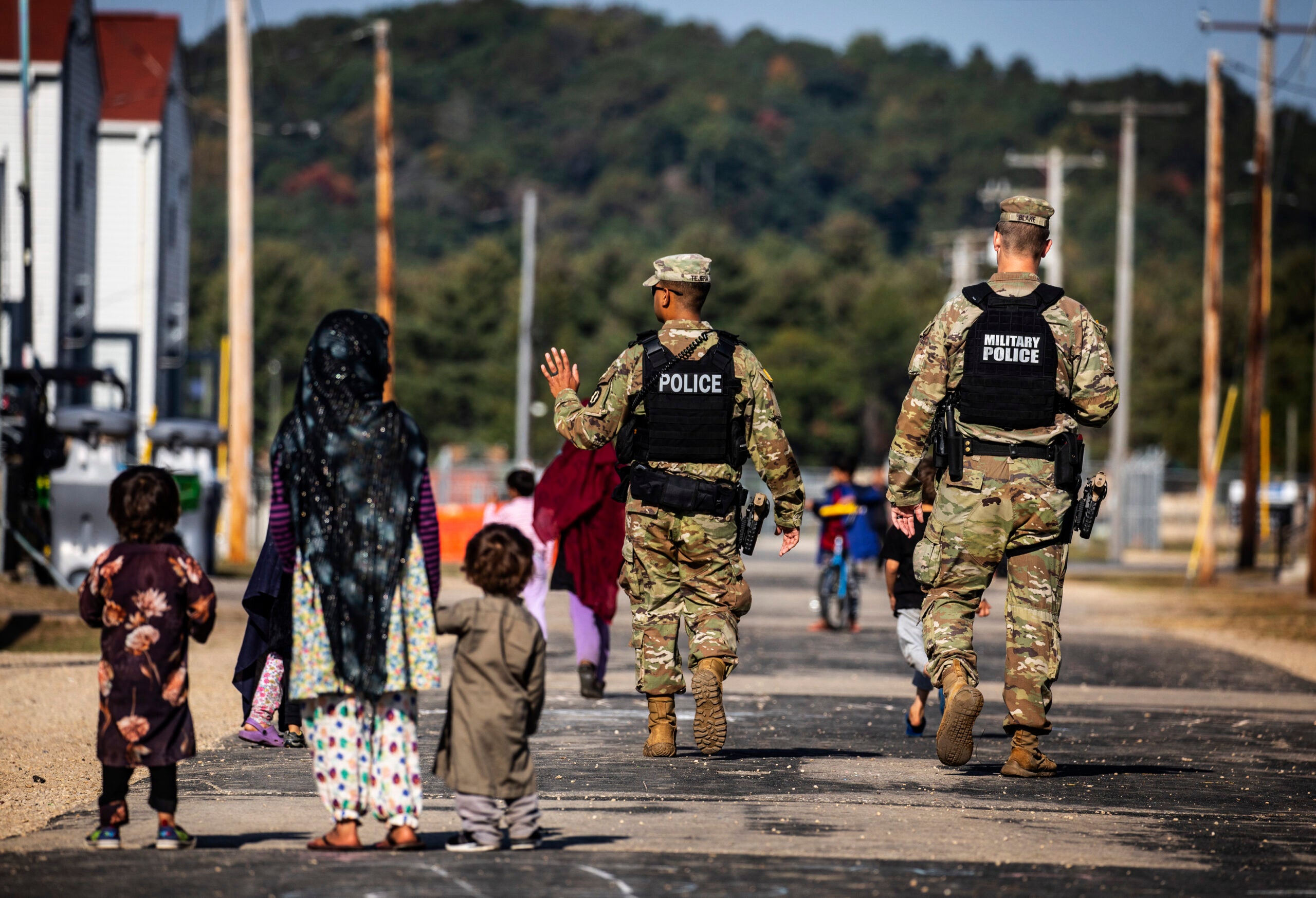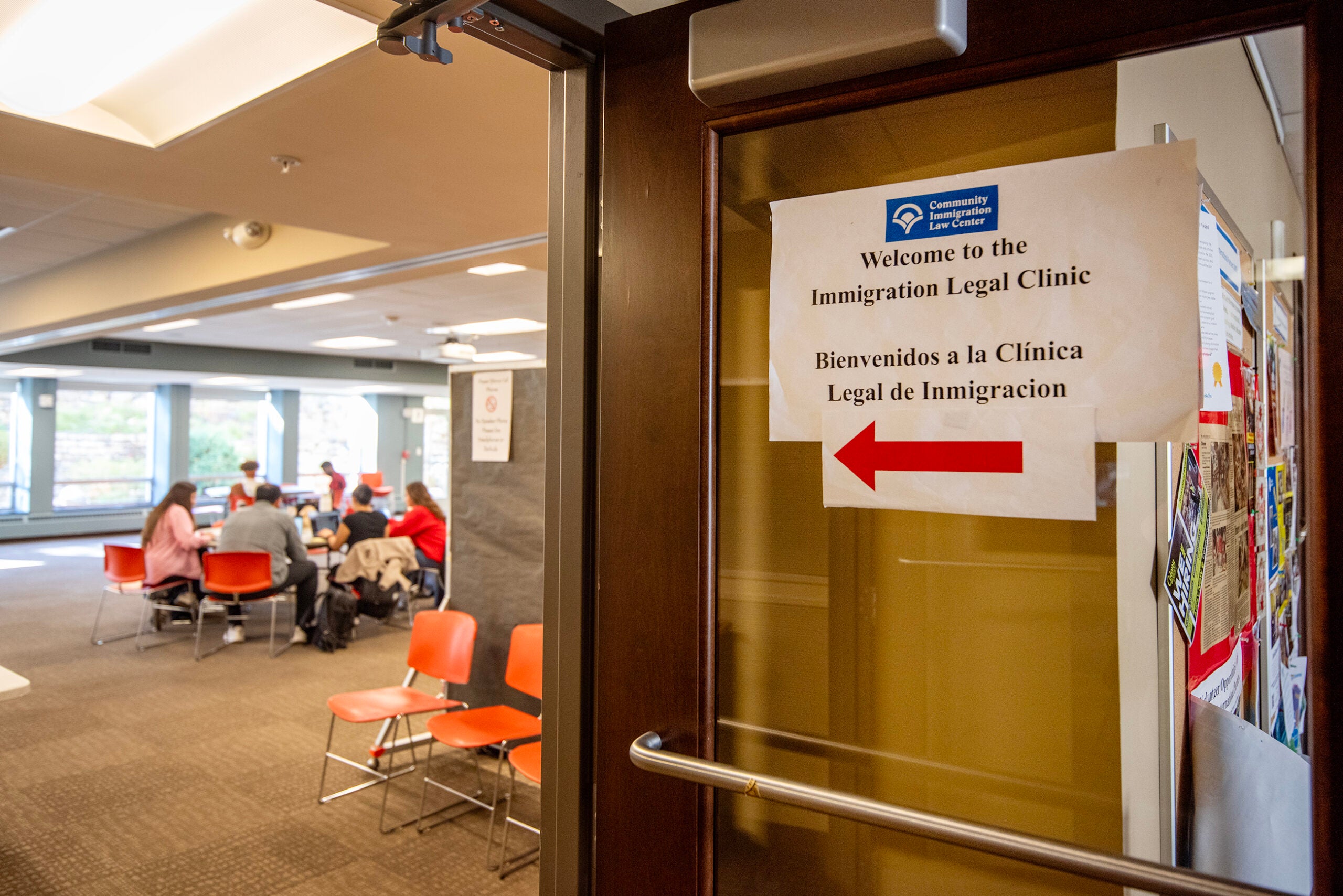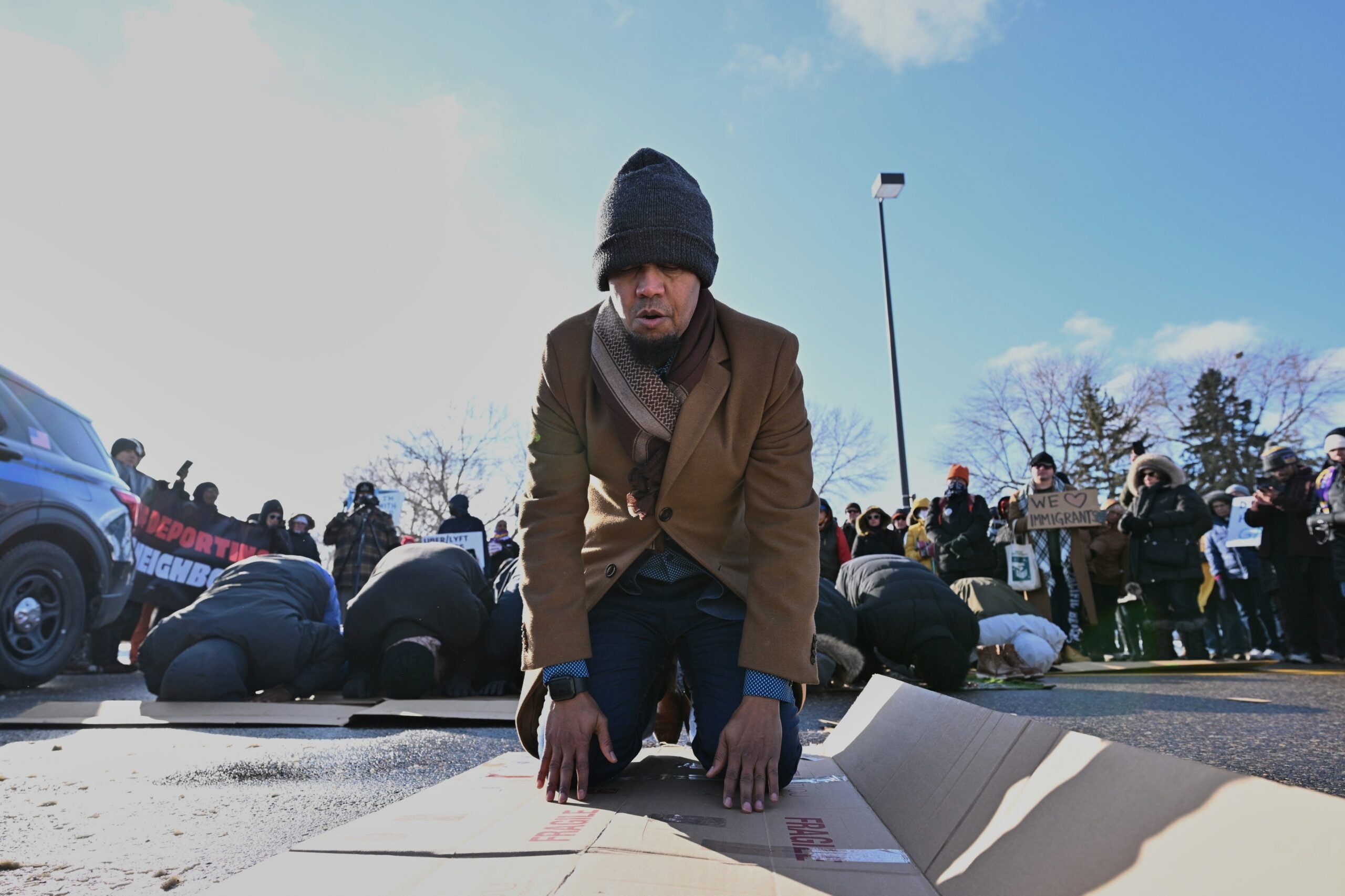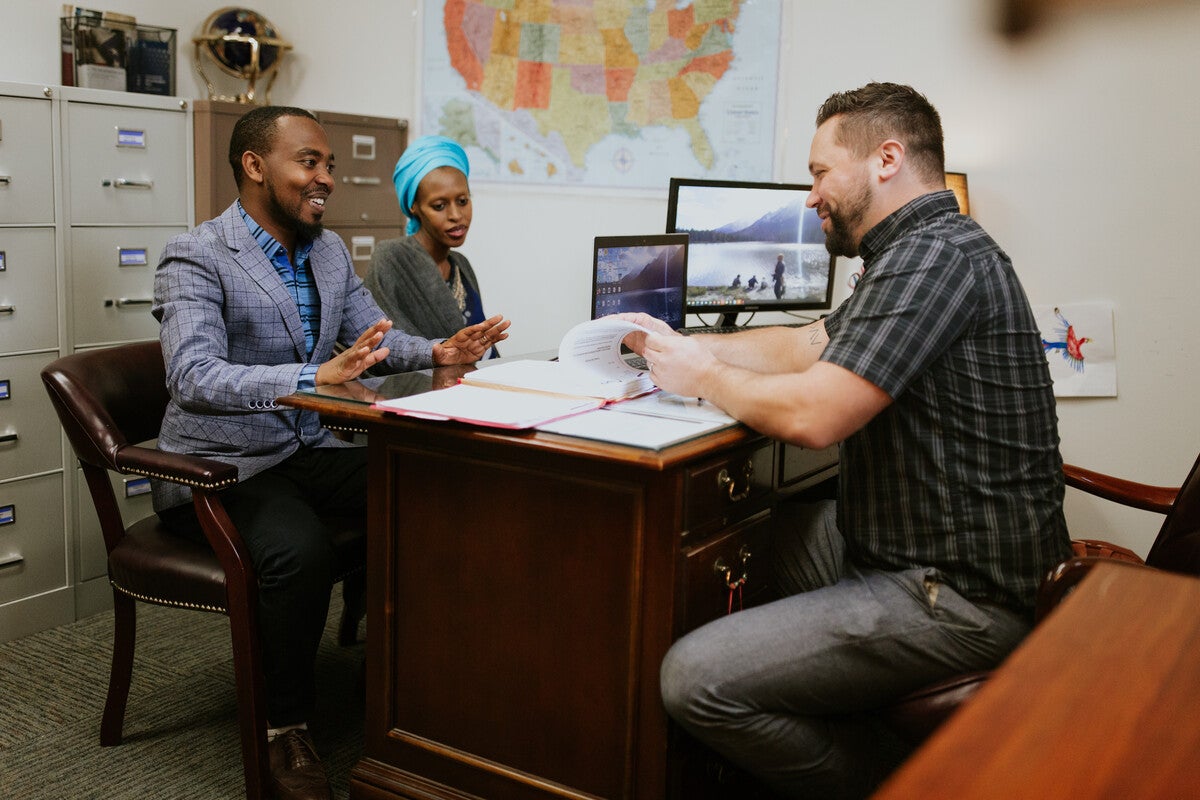On his first day back in the White House, President Donald Trump issued a series of sweeping executive orders targeting immigration policy, including one that suspends the refugee resettlement program indefinitely, stopping the admission of refugees into the United States.
The text of the executive order mentions Whitewater among the small towns that “have seen significant influxes of migrants,” echoing talking points Trump made on the campaign trail about rising crime rates and ballooning housing costs in Whitewater due to migrants moving in from Nicaragua and Venezuela — claims that local officials refuted.
Following the order, the State Department issued a memo cancelling previously scheduled flights for refugees traveling to the United States. This affected more than 10,000 refugees who were slated to travel, possibly leaving them separated from family.
News with a little more humanity
WPR’s “Wisconsin Today” newsletter keeps you connected to the state you love without feeling overwhelmed. No paywall. No agenda. No corporate filter.
Erin Barbato is director of the Immigrant Justice Clinic at the University of Wisconsin Law School. She told WPR’s “Wisconsin Today” this executive order leaves refugees “in limbo again” after refugee resettlement was dismantled during the first Trump administration and slowly restored under the Biden administration.
“So we’re kind of one step forward and two steps back again, leaving people who have been waiting upwards of two years to get placed into the United States … hoping that either the United States reopens the refugee process or another country will be willing to accept them,” she said. “That often means that they’ll be separated from their family that has already been resettled in the U.S.”
This week, Barbato took some of her students to offer information to immigrants detained at Dodge County Detention Facility in Juneau about how this week’s executive orders could affect them. Dodge is the only facility in Wisconsin that holds people for U.S. Immigration and Customs Enforcement, or ICE, including asylum-seekers awaiting processing of their claim or immigrants facing deportation proceedings.
Barbato said that under the Trump administration’s plan, the number of immigrants in detention will likely increase, making it more difficult to access legal services.
“Wisconsin is definitely considered a desert for immigration services, specifically for pro bono or ‘low bono’ services, so people who are in detention, who aren’t able to work, it’s nearly impossible for them to be able to afford to hire an attorney,” Barbato said. “Private attorneys are also extremely busy right now.”

While many of Trump’s executive orders are expected to face legal challenges, there is an uphill road ahead for immigrants, refugees and asylum-seekers, Barbato said.
“All of these executive orders are changing the dynamic of people living here, whether someone doesn’t have documents, or whether someone has been pulled into the United States, or someone has lawful permanent resident status,” she said. “It’s all more difficult.”
Talk of ICE raids in Wisconsin
Earlier today, ICE raided a restaurant in Newark, New Jersey, raising fears about continued roundups around the country. Tim Muth, senior staff attorney at ACLU Wisconsin, said Wisconsin could see something like the ICE raids of 2018, when 83 people from around the state were arrested.
“It’s a reminder that ICE enforcement and deportation isn’t just something that happens at the southern U.S. border,” Muth said. “People who are going to be removed from the state of Wisconsin are going to be processed through that facility,” referring to the ICE office in Milwaukee that recently expanded and moved to the city’s northwest side, to local controversy.
There is also concern about where ICE is allowed to go after the Department of Homeland Security announced this week it is rescinding Biden-era rules preventing immigration authorities from entering “protected areas” like schools, hospitals and churches.
Muth told “Wisconsin Today” it is important for all residents to know their constitutional rights.
“The Fourth and Fifth Amendments protect you from searches without search warrants, give you the right to remain silent. They apply to police and ICE equally. It doesn’t matter if you are a citizen or not, you have that same set of rights,” he said. “You don’t have to answer questions or let them enter your house unless they have a search warrant signed by a judge, whether it’s the police or ICE.”







